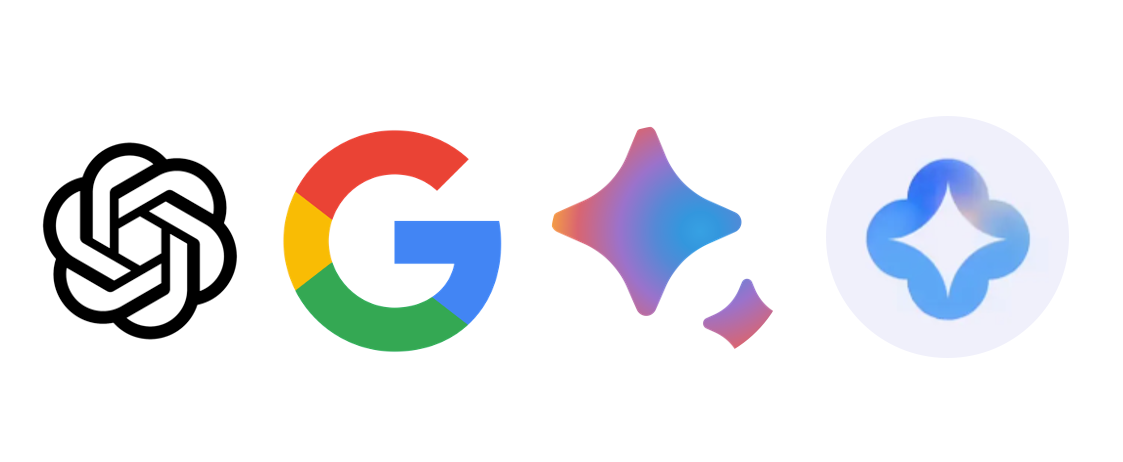Hours Ranking Confirmed, Bard Getting Better, AI Content Dilution

Local Hours 'Definitely a Thing'
At the end of last week, SterlingSky announced its testing had determined that business hours were a local new ranking signal in Google Search and Maps. But there wasn't any other confirmation and some SEOs were convinced it was a bug. Whitespark's Darren Shaw's early testing found no ranking changes based on business hours. But over the weekend that changed and Darren reversed himself. He now agrees that ranking based on business hours is "is definitely a thing." While business hours ranking had been going on in mobile prior to November 2023, it now appears more comprehensive. Outstanding questions remain. Does this apply equally to mobile and desktop? (It would appear so.) And, is it category dependent? There will likely be business-hour manipulation as this "sinks in": businesses going "24/7" and competitors (or disgruntled customers) messing with business hours.
Somewhere in the world, it is 5:00 p.m. ... in this case almost 9 but you can always check if the business hours are a ranking factor. This is maps results, just refreshing the page, nothing else. @mblumenthal @JoyanneHawkins @ColanNielsen @rustybrick @Kevin__Pauls pic.twitter.com/TCcwvZB9IK
— Stan Kolev (@stankolev) December 10, 2023
Our take:
- Google's Danny Sullivan implied that he'll confirm whether it's an actual local ranking change. He said it wasn't part of the recent core update.
- Local search is not always about "near me right now." It's also about future planning. Google should probably limit this to specific categories/keywords.
- While users and third party data might help police "hours inflation," it's less clear how Google will address "suggest an edit" hours manipulation.
Bard Getting Better, SGE 'Expiring'
When Google released Gemini last week, the company said it outperformed ChatGPT according to various industry benchmarks. There was some pushback against that claim. Now an informal test comparing the new Gemini-powered Bard and ChatGPT across several tasks finds the latter still beats Bard but that the gap has narrowed considerably. As with Bard, Google plans to use Gemini to generate SGE results in search. But what happens to SGE at the end of this month when it's set to expire as a Google Labs experiment? It seems clear that SGE will continue. But Google probably isn't ready to stop calling SGE an "experiment" because it's still "unstable" and the company doesn't know quite what to do with it vs. the rest of the SERP. Google also faces a dilemma with Bard, as Gemini gets better. Bard could start to cannibalize traditional search for those seeking "answers" and avoiding ads. It's the second most used AI tool after ChatGPT. In fact, I'm using ChatGPT and Bard for numerous things I would have previously searched for – and using Google about 25% less. In 2024 will Bard become a good enough, ad-free version of search, such that people turn to it more and Google.com less? One thing is clear, ChatGPT's arrival has complicated Google's search strategy.

Our take:
- Google itself sees Bard and Search as complementary. But as Bard's capabilities grow that will become less true.
- When you ask Bard to compare itself to Google, it says: 1) search is faster and more accurate, 2) search offers broader results, 3) people are more familiar with search, 4) search is less biased. Sounds a bit insecure.
- Regardless, the near-term disruption of Google search that some predicted when ChatGPT launched is not happening. Longer term, it's still possible.
AI Content Dilution
Many people worry that AI-generated content flooding the internet will lower the overall quality of the web, while others dismiss this concern. AI critics fear a new era of automated content farms is at hand. Some publishers and SEOs are already using AI to "spin up" hundreds or thousands of pages of content. But there's also another concern about subsequent large language models being trained on a web that has been "diluted" by AI generated content and synthetic media. A potential example of that appeared late last week, as Elon Musk's new AI Grok was caught "plagiarizing" ChatGPT. Grok generated a response declining to fulfill a user's request because it went against "OpenAI's use case policy." A Grok engineer responded, "The issue here is that the web is full of ChatGPT outputs, so we accidentally picked up some of them when we trained Grok on a large amount of web data." Let's assume the Grok engineer is correct and that it simply picked up a "ChatGPT output," this would seem to validate the concern about "dilution." And there are other examples of AI being used to plagiarize content, which would then become training fodder for next-generation LLMs and so on ...

Our take:
- It may be that Grok indeed plagiarized ChatGPT and the engineer's explanation is simply a CYA excuse.
- There's no question that LLMs trained on earlier LLM outputs or AI-generated derivative content would be diluted or diminished.
- The zero-marginal cost of AI content will likely mean a lot more crap in the SERP.
Recent Analysis
- Near Memo episode 137: Can Gemini fix search?, the impact Google’s rating bias, LSA reviewjacking.
Short Takes
- Moz: a guide to Google Business Profile photos.
- Why Google Maps should quit "immersive" and work on the basics.
- Google reportedly taking steps to deal with "parasite SEO."
- Using Google filters, SGE follow-up Qs and related searches for SEO.
- Brand Signals says it has created truly automated Local SEO.
- TikTok crosses $10 billion in revenue, one of only five apps to do so.
- The power of user inertia keeps even disdainful platforms alive.
- 70% of EU small businesses want/need help selling online.
- EU local SEO report: 50%+ of retail locations not optimized.
- Year in search: Google offers global and local lists.
- EU now the de-facto global regulator of AI, except in China.
Listen to our latest podcast.

How can we make this better? Email us with suggestions and recommendations.

